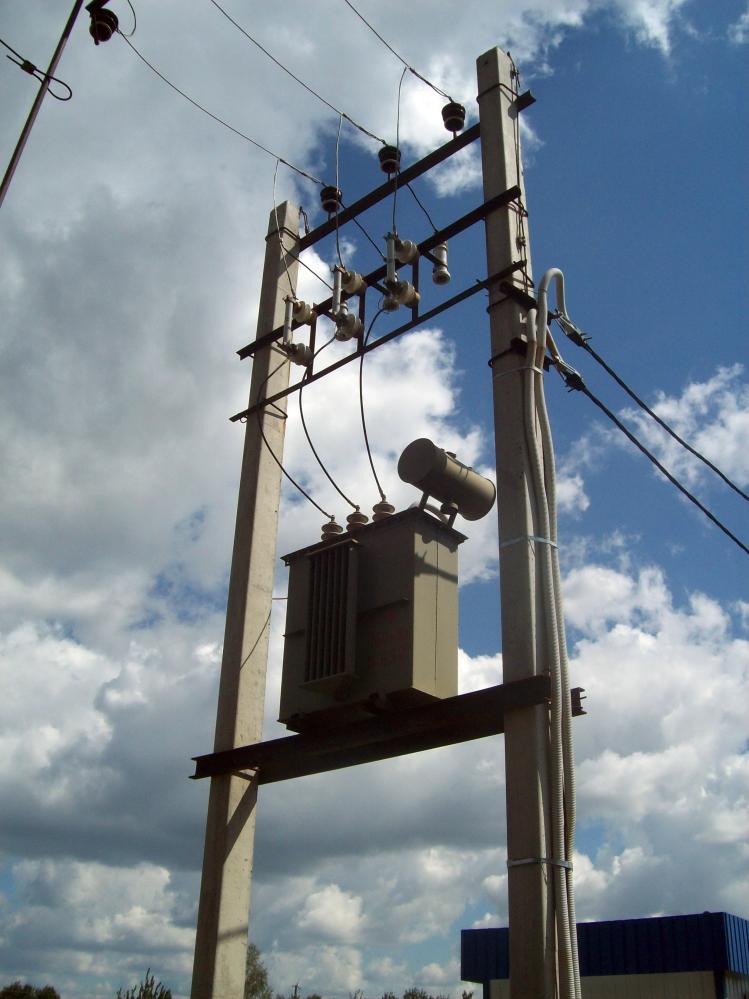Residential Electric Service

What is Residential Electric Service?
Residential electric service forms the backbone of modern living, bringing homes alive with energy and connectivity. It encompasses the delivery and distribution of electricity from utility providers to individual households, ensuring that all electrical needs are seamlessly met. This service is not just about powering lights and appliances; it involves a complex network of substations, transformers, and meters working in harmony. Electric service providers work tirelessly to maintain infrastructure integrity, preventing disruptions and ensuring the continuous flow of power.
A well-functioning residential electric service is crucial for the safety and efficiency of a home's electrical systems. It's a vital component that supports everything from lighting up rooms to powering essential appliances. Homeowners are often unaware of the intricacies involved, including voltage specifications, safety regulations, and energy efficiency standards that providers adhere to.
The importance of consistent and reliable residential electric service cannot be overstated. It fuels daily life, from waking up to a freshly brewed coffee to winding down with evening entertainment. Understanding this service involves recognizing its role not just in comfort but in sustaining modern life itself.
Components of Residential Electric Service
Distribution Lines and MetersDistribution lines silently snake through neighborhoods, visible yet often unnoticed, carrying electricity from local substations to homes. These lines are the lifeline of any residential community, designed to safely deliver electricity at usable voltages. Meters attached to homes are equally critical, acting as sentinels that measure the amount of electricity consumed, which is then translated into billing data. These devices are now often equipped with smart technology that provides real-time usage data and assists in energy management.
Transformers and SubstationsTransformers are pivotal components in the residential electric service, stepping down high-voltage electricity to a level suitable for home use. Often perched atop poles or enclosed in cabinets, they ensure efficient energy delivery while maintaining safety standards. Substations further facilitate this process by managing the distribution of electricity across regions, modulating voltage, and safeguarding the system against overloads.
Safety ProtocolsSafety is paramount in the delivery of residential electric service. Providers implement rigorous protocols to protect both their infrastructure and the end-users. Circuit breakers, grounding systems, and regular maintenance checks are employed to prevent accidents and ensure the resilience of the electric grid. Homeowners are encouraged to participate by maintaining their internal wiring and promptly addressing any electrical issues.
Innovations in Residential Electric Service
The world of residential electric service is evolving, embracing innovations that enhance efficiency and sustainability. Smart meters, for instance, have revolutionized how electricity is monitored, allowing consumers to track their usage patterns and adjust their habits for better energy efficiency. This technology not only empowers consumers but also aids providers in managing demand and reducing wastage.
Another remarkable advancement is the integration of renewable energy sources into residential electric service. Homeowners are increasingly installing solar panels and wind turbines, feeding clean energy back into the grid. This shift not only reduces reliance on fossil fuels but also offers users potential financial incentives through energy credits and rebates.
Technological advancements aside, community initiatives play a role in reshaping the landscape of residential electric service. Energy cooperatives and microgrids are emerging, creating localized energy solutions that offer enhanced resilience and sustainability, particularly in remote areas. These innovations reflect a growing commitment to environmentally conscious and efficient energy practices.
In sum, residential electric service is a dynamic field, continually adapting to meet the demands of an increasingly energy-dependent society. Through a combination of technological innovations and improved service protocols, it offers a window into the future of clean, efficient, and reliable energy. The changes being introduced today promise to redefine how electricity is experienced at the residential level, paving the way for smarter and more responsible energy consumption.

Overview of Commercial Electricians
When it comes to ensuring the safety and efficiency of electrical systems in business environments, commercial electricians play a pivotal role. These professionals specialize in installing, maintaining, and repairing electrical systems in commercial buildings, which can vary significantly from residential projects. They require a deep understanding of electrical codes and standards, as well as the ability to manage larger-scale projects that often involve complex electrical networks. As technology continues to advance, commercial electricians are increasingly called upon to integrate new and innovative systems into existing structures.
Local businesses often rely on commercial electricians in my area to provide expert services tailored to their specific needs. These services can include designing electrical systems for new constructions, retrofitting outdated systems, and conducting regular maintenance to prevent costly downtime. Their ability to troubleshoot and address electrical issues promptly helps ensure that businesses operate smoothly and safely. This level of expertise is crucial in minimizing disruptions and maintaining compliance with safety regulations.
Innovative Solutions for Businesses
In recent years, commercial electricians in my area have begun to adopt more innovative solutions to meet the evolving demands of modern businesses. Energy efficiency has become a top priority, with many companies seeking sustainable options to reduce energy consumption and lower costs. In response, electricians are now skilled in installing smart lighting systems, advanced HVAC controls, and energy management systems that can dramatically improve a building's energy profile. These systems not only help businesses save money but also contribute to a more sustainable future.
Another cutting-edge approach involves the integration of renewable energy sources such as solar panels and wind turbines. For businesses looking to lessen their environmental impact, these solutions offer a viable way to leverage natural resources while reducing reliance on traditional power sources. Commercial electricians play a crucial role in designing and installing these systems, ensuring they are integrated seamlessly with existing electrical infrastructures.
With cybersecurity concerns on the rise, commercial electricians in my area are also incorporating advanced technologies to protect businesses from potential threats. Electricians are now trained to install secure Internet of Things (IoT) devices and networks that help safeguard a building's electrical systems against cyberattacks. This proactive approach not only protects sensitive business information but also enhances overall building security.
Considerations When Hiring
Experience and QualificationsChoosing the right commercial electricians in my area is crucial for ensuring safe and efficient electrical work. One of the key considerations is the electrician's level of experience and qualifications. A seasoned professional with a strong track record in commercial projects is more likely to deliver high-quality work. This practical experience often translates into an in-depth understanding of commercial electrical systems, which can prove invaluable in complex projects.
Reputation and ReferencesA reputable electrician is essential for peace of mind. It is advisable to seek out customer reviews and ask for references from past clients to gauge the electrician's reliability and work ethic. Companies with positive feedback are more likely to provide a satisfactory service that meets your expectations. This feedback can be a powerful tool in helping businesses make informed decisions when hiring an electrician.
Licensing and ComplianceEnsuring that the commercial electricians in my area hold the necessary licenses and adhere to local regulations is non-negotiable. Proper licensing demonstrates a commitment to industry standards and safe practices. Compliance with local codes not only ensures legality but also helps prevent potential legal issues down the road, safeguarding the business's interests.
Cost and WarrantyWhile cost should not be the sole factor, it remains an important consideration when hiring commercial electricians in my area. Obtaining multiple quotes ensures a competitive price and helps identify any outliers. Additionally, a good electrician should offer a warranty or guarantee on their work, providing added assurance and recourse in case of any issues post-installation.
Impact of Weather on Electricity Status
Weather patterns significantly affect the electricity status in my area, with extreme weather conditions often leading to unexpected disruptions. During storm seasons, for instance, power outages become more frequent due to downed power lines and damaged transformers. The unpredictability of natural elements poses challenges for maintaining a consistent electricity supply, prompting utility companies to undertake extensive contingency planning.
Heatwaves also have a profound impact, as the increased demand for air conditioning can strain the grid. This heightened demand can lead to rolling blackouts, where power companies preemptively cut electricity to conserve energy and prevent larger failures. These logistical challenges emphasize the importance of efficient energy management strategies and innovations in renewable energy resources.
Conversely, during milder seasons, the electricity status in my area tends to stabilize, with fewer disruptions and more predictable energy usage patterns. This predictability allows for smoother operations and planning for both residential and commercial users. The reliable service during these times highlights the resilience of the energy infrastructure when not challenged by extreme conditions.
Community Engagement and Solutions
Community initiatives play a crucial role in addressing the electricity status in my area, often driving innovative solutions to enhance energy efficiency. Collaborative efforts between local governments, utility companies, and residents have led to the implementation of smart grids and energy-efficient appliances. These advancements enable real-time monitoring and management of energy consumption, reducing the likelihood of overloads and service interruptions.
Home Alliance, known for its commitment to customer satisfaction, supports these efforts by educating homeowners and businesses on energy-saving practices. Their expertise in HVAC and plumbing services extends to advising clients on optimal energy use and maintenance, thereby contributing to a more stable electricity status in my area. By empowering residents with knowledge and practical solutions, Home Alliance helps foster a more resilient community.
Additionally, grassroots movements focusing on renewable energy sources, such as solar panel installations and wind energy projects, are gaining traction. These initiatives not only reduce reliance on traditional power sources but also promote sustainability and self-sufficiency among communities. Such proactive approaches are pivotal in ensuring a reliable electricity status in my area, regardless of external pressures.
Engagement with technology has also been influential, as the integration of energy management apps offers users the ability to track and control their electricity use more effectively. These apps provide insights into daily consumption patterns, enabling informed decisions that contribute to maintaining a consistent electricity supply. The rise of these digital tools signifies a shift towards smarter and more sustainable energy solutions.
Personal Experiences with Power Outages
Throughout various power outages, individuals have shared insightful experiences that underscore the critical nature of the electricity status in my area. During one such instance, a homeowner described their reliance on Home Alliance's prompt HVAC services to restore comfort and functionality in their home. The swift response and expertise offered a tangible solution in an otherwise challenging scenario, highlighting the value of dependable service providers.
In another account, a small business owner recounted the impact of unexpected outages on their operations, emphasizing the importance of preparedness. These experiences reveal the broader implications of electricity status in my area, affecting both personal conveniences and economic activities. The ability to adapt and implement effective contingency plans has proven to be essential in mitigating these impacts.
Moreover, the resilience of communities during these disruptions paints a vivid picture of solidarity and resourcefulness. Neighbors often come together to share resources and support each other, demonstrating the power of community cooperation in overcoming temporary challenges. These human experiences offer a lens into the real-world implications of electricity service beyond the technical aspects alone.

What is normal residential electrical service?
Normal residential electrical service refers to the typical system setup that supplies electricity to a household to meet its common electrical needs. In general, this includes the provision of a standard voltage--usually 120/240 volts in North America--sufficient to run lights, household appliances, and other electronic devices efficiently. The service is typically managed via a network of distribution lines, transformers, and meters, ensuring safe and reliable delivery. At Home Alliance, we often liken it to the lifeline of a home, as it's fundamental to maintaining daily comfort and functionality. For anyone navigating residential electrical concerns, understanding this system's basic components is crucial. How does your current electrical service setup suit your household needs?
What are residential electrical services?
Residential electrical services encompass a broad range of offerings designed to install, maintain, and repair the electrical systems within a home. At Home Alliance, we see these services as holistic support for everything electrical in your living space--from wiring and lighting installations to more complex tasks like integrating renewable energy solutions. One homeowner recently shared their experience with us, remarking how a regular maintenance check helped identify an overheating circuit, averting a potential hazard. These services ensure safety compliance and optimize system efficiency, significantly enhancing home safety and energy use. Have you considered a routine check-up for your electrical systems to prevent unexpected issues?
How much does it cost to connect a house to electricity?
The cost to connect a house to electricity can vary considerably, depending on several factors like the property's location, the distance from the nearest power line, and the complexity of the required infrastructure. On average, homeowners might expect to pay between $2,000 to $5,000 for a new connection. At Home Alliance, we've guided numerous clients through this process, ensuring they understand each step and cost involved. One of our clients benefited from a detailed quotation process, which highlighted savings on trenching and helped them plan budget-friendly installations. Given these variables, it's essential to get detailed quotes from service providers. Are you planning to connect a new property and need guidance on expected costs?
What is the most common residential electrical service?
The most common residential electrical service found in homes today is the 200-amp service panel. This setup typically meets the demands of modern households equipped with multiple appliances and gadgets. At Home Alliance, we find that homeowners often upgrade from older 100-amp panels to these newer systems to support high-energy use sustainably. An example is when we assisted a family in upgrading their electrical panel, which allowed them to add an electric vehicle charging station with ease. This type of service provides both the capacity and flexibility needed for today's varied electrical requirements. Have you assessed whether your current electrical panel meets your household needs in terms of capacity and safety?
How does the weather impact electricity status in my area?
Weather can significantly impact electricity status, often leading to outages and requiring robust contingency plans. For instance, storms can bring down power lines, while heatwaves might increase electricity demand, causing temporary blackouts. At Home Alliance, we have witnessed customers whose HVAC systems were affected during such times, emphasizing the importance of preparedness and regular maintenance. One way to mitigate these effects is by adopting energy-efficient solutions and maintaining communication with the local utility. How does your household cope with unexpected weather-induced power disruptions?
Resources
- Department of Energy - The official website of the U.S. Department of Energy, providing information on energy efficiency, renewable energy, and electricity resources.
- Electrical License Renewal - A resource for electricians to renew their licenses and stay updated on industry regulations and standards.
- Electricity Forum - A platform offering resources and training for electricians and professionals in the electrical industry.
- National Fire Protection Association - An organization focused on fire prevention and safety, including guidelines for electrical safety in residential and commercial settings.
- Environmental Protection Agency - The EPA's website provides information on energy conservation, sustainability, and environmental impact related to electricity usage.

